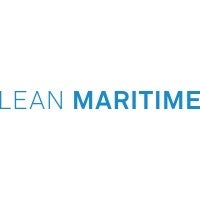Falling tickets prices, tighter environmental regulations and guests’ expectations for increasingly higher levels of comfort, entertainment and well-being have turned the overhaul of cruise ships into a major challenge. Process excellence is required to overcome it, explains Lean Maritime.
A growing market of increasingly younger cruise clients is making it necessary to rethink the whole concept of cruise ship design and use. The entertainment levels presented on new ships are light years ahead of those found in the mid-1990s. A thoughtful wellness and fitness offer is nowadays an integral part of ship design. Bars and restaurants face new customer demands in terms of quality, service time and scope of offer. The effect of energy and water consumption on fuel economy is a growing consideration alongside already high usage and displacement costs. Environmental restrictions are increasingly common in main cruise destinations, adding a further layer of complexity to the overhaul decision-making process.
The challenges of overhaul
Ships are not designed for overhaul: imagine a car that required you to cut and re-weld the oil sump just to change the oil. Shipbuilding yards are seldom ship-overhaul yards, and the lack of crossover experience can be seen in the way ships are built.
Older ships, however, are more expensive to operate, and guests are not prepared to pay the same for them as they would for newer ships, meaning the gap between revenue and operating costs grows every year.
At the same time, the logistics of repair and overhaul dockings are not conducive to efficient project execution. With docks often only available for short periods, a high likelihood of unforeseen problems arising, the need to involve as many as 50 subcontractors, and a high turnover of teams working simultaneously on different parts of the ship, the risk of disruption is high. Smaller modifications and repairs that have taken place over years of use but weren’t documented will also make overhauls harder, and require greater flexibility in the approach.
Process efficiency
Lean Maritime is a consulting company specialising in process improvement in the shipbuilding industry, from engineering over construction to service, and repair and overhaul. The company’s experts have amassed long experience in automotive manufacturing, supply chain management, construction, purchasing and quality management, devising unique methods and tools for this niche industry, such as process status visualisation. The company is also committed to the continuous improvement of these methods and tools.
Lean Maritime focuses on process optimisation through the identification and elimination of superfluous waste, in close collaboration with the different stakeholders. Detailed shipbuilding know-how, the ability to implement measurable and sustainable processes, and significant experience of working with some of the major yards, owners and classification entities all guarantee exceptional results.
Shorter docking times, lower labour costs and a higher quality of work require proven organisational abilities. Lean Maritime uses different tools for the overhaul of, for instance, staterooms; single jobs (for example changing an engine compartment); and emergency jobs (such as hull repair after collision), to achieve unique results every time.


